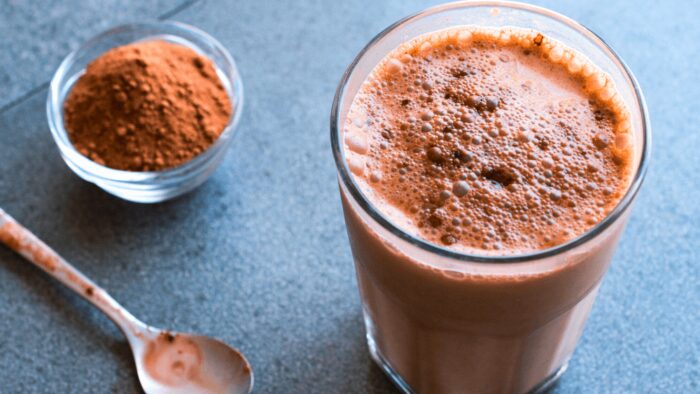Will Whey Protein Shakes Help You Lose or Gain Weight?
The effects of whey protein specific to weight loss are still under debate. There is mounting evidence that it can be helpful, but weight loss always comes down to calories in versus calories out.
Whey protein may make you lose or gain weight depending on your current diet, exercise routine, and other factors. To be safe, you should combine whey protein with a healthy diet and regular exercise.
You also need to decide whether you want whey protein for weight loss or muscle gain, both of which require very different exercise and diet plans.
What Is Whey Protein?
Whey protein is a byproduct of cheese production (whey is the liquid after milk has been curdled and strained). Whey used to be discarded as industrial waste but became more valuable once people discovered that it contains proteins- a high-quality mix of amino acids.
Whey can be dried into whey powder or liquid extracts are available too.
There are two main kinds of whey protein supplements on the market, isolate and concentrate. Whey protein isolate is 90 percent pure while whey protein concentrate has only 70 percent purity, so the latter is more likely to cause digestive problems.
You can also buy hydrolyzed whey protein that is easier to digest, but it is more expensive.

What the Science Says About Whey Protein and Weight Loss
There is no consensus in scientific research about whether whey protein will help you lose weight, but the results look promising.
One study looked at the effects of whey protein and weight loss by having participants go on a low-calorie diet, drink shakes containing either whey or soy protein for three months and then “cross over” to the other group.
The subjects who drank whey shakes lost significantly more fat mass than the ones that drank soy.
The problem is that the study was terminated after only 13 weeks, which means it wasn’t very thorough. The results are therefore not conclusive.
A better-conducted study had 32 women follow a reduced-calorie diet for three months and do resistance training twice per week.
They were divided into three groups: one group took a supplement containing 22 grams of protein, one group took a high-protein supplement (35 grams) and the control group took a placebo.
The participants in the high-protein group lost more fat mass than those in the other groups, but the difference was not statistically significant.
A two-month study had 27 inactive men and women drink 25 grams of whey protein or a placebo after performing weight training. The participants that consumed the protein powder lost significantly more fat mass and showed better improvement in lean body mass.
However, a similar study on women had completely different results.
In this case, 60 overweight but otherwise healthy women participated in a resistance-training program and were divided into four groups: those that consumed a placebo, whey protein, soy protein, or an amino acid supplement.
No significant weight loss was observed in any of the groups.
In conclusion, it’s reasonable to say that some evidence exists that whey protein could help you lose fat mass but more research is needed before we can draw a definitive conclusion. With that being said, high protein foods should be the backbone of your diet.
